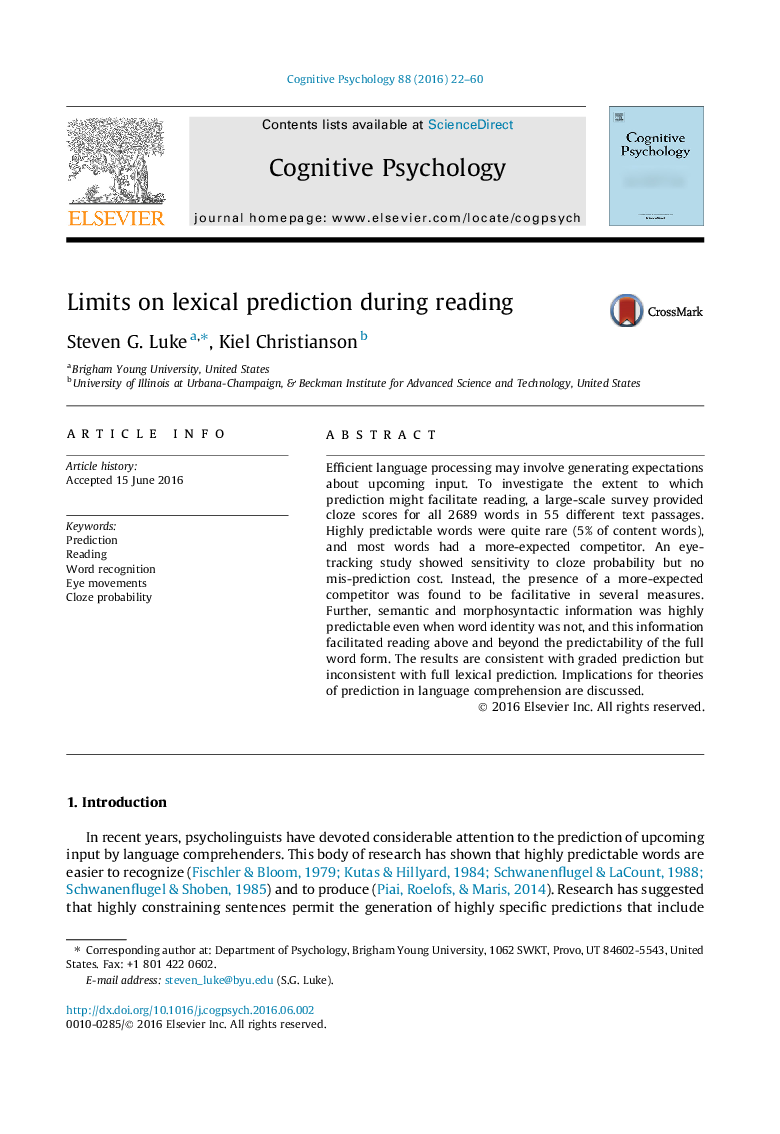| Article ID | Journal | Published Year | Pages | File Type |
|---|---|---|---|---|
| 7272724 | Cognitive Psychology | 2016 | 39 Pages |
Abstract
Efficient language processing may involve generating expectations about upcoming input. To investigate the extent to which prediction might facilitate reading, a large-scale survey provided cloze scores for all 2689 words in 55 different text passages. Highly predictable words were quite rare (5% of content words), and most words had a more-expected competitor. An eye-tracking study showed sensitivity to cloze probability but no mis-prediction cost. Instead, the presence of a more-expected competitor was found to be facilitative in several measures. Further, semantic and morphosyntactic information was highly predictable even when word identity was not, and this information facilitated reading above and beyond the predictability of the full word form. The results are consistent with graded prediction but inconsistent with full lexical prediction. Implications for theories of prediction in language comprehension are discussed.
Related Topics
Life Sciences
Neuroscience
Cognitive Neuroscience
Authors
Steven G. Luke, Kiel Christianson,
